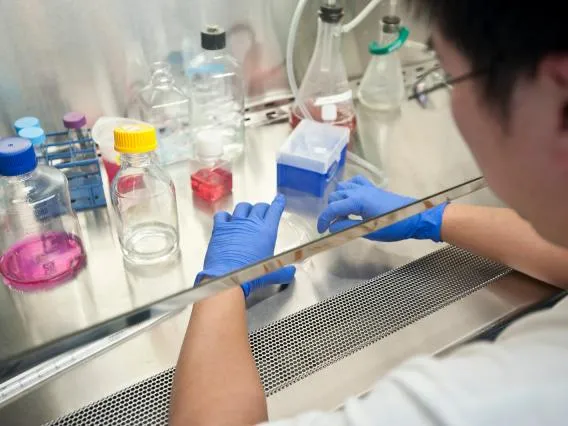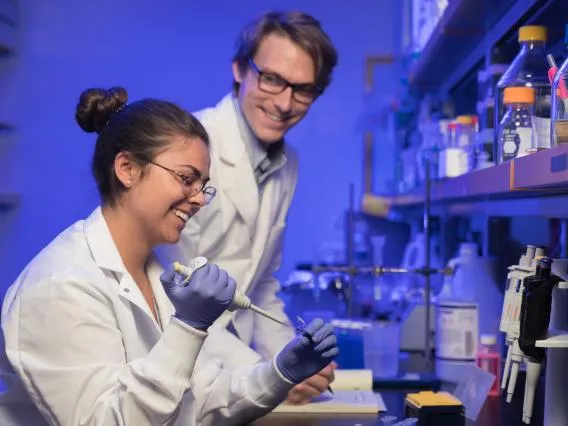Life and Molecular Sciences
Life and molecular science studies take an integrative approach to the study of cells, genetics, chemistry and biochemistry. Faculty and students use models, lab experiments, fieldwork, analysis, state-of-the-art research facilities, museums and collections to gain knowledge and find solutions to health, engineering, environmental, industrial, social and scientific issues that challenge the world.
The Ecology and Evolutionary Biology department emphasizes the roles of biodiversity and diversification in an evolutionary context. Coursework and research focus on the biological diversification of genes, cells, organisms, populations, communities and ecosystems. Faculty and students study all kinds of habitats and taxonomic groups. The new knowledge that is generated creates a better understanding of biological systems, genetic networks and genome sciences. This knowledge can provide solutions to questions relating to diseases, genetic expression, genome stability, RNA biology and systems biology.
Chemistry and Biochemistry unites disciplines such as physics, materials science and cellular biology in the study of the structure and properties of matter. This interdisciplinary approach allows faculty and students to integrate their knowledge in order to address key issues that have an impact on quality of life. The program provides a foundation for careers in medicine and other health sciences, secondary education, industry, or further studies in chemistry or biochemistry.
Faculty and students in Molecular and Cellular Biology blend their understanding of various chemistry and biology disciplines to develop new knowledge about the functions of molecules, cells and genes. This knowledge can be used to seek solutions to challenges in medicine, engineering, health, the environment and agriculture.




